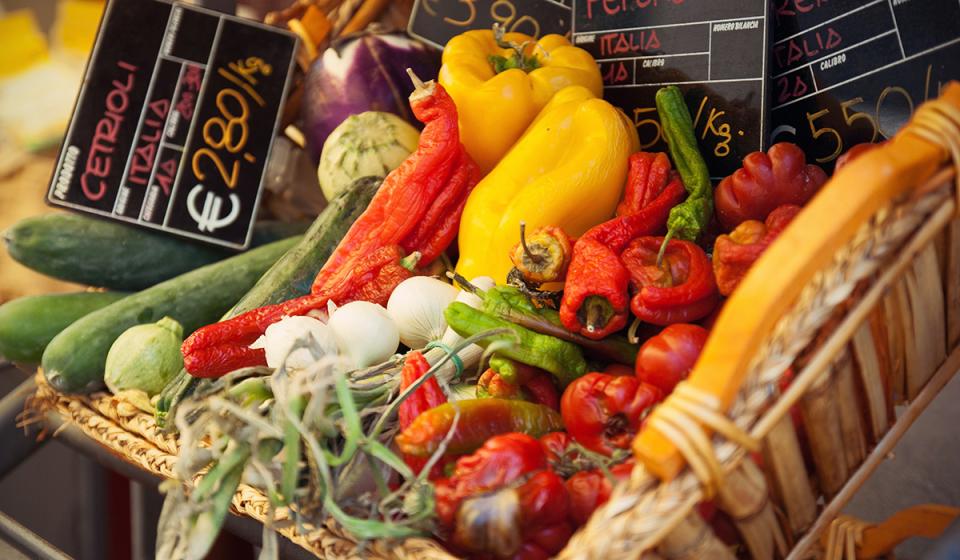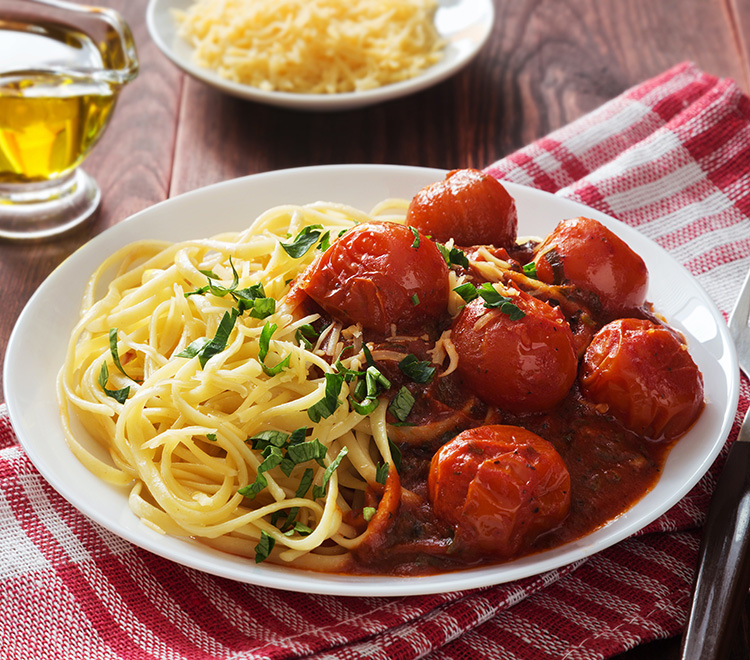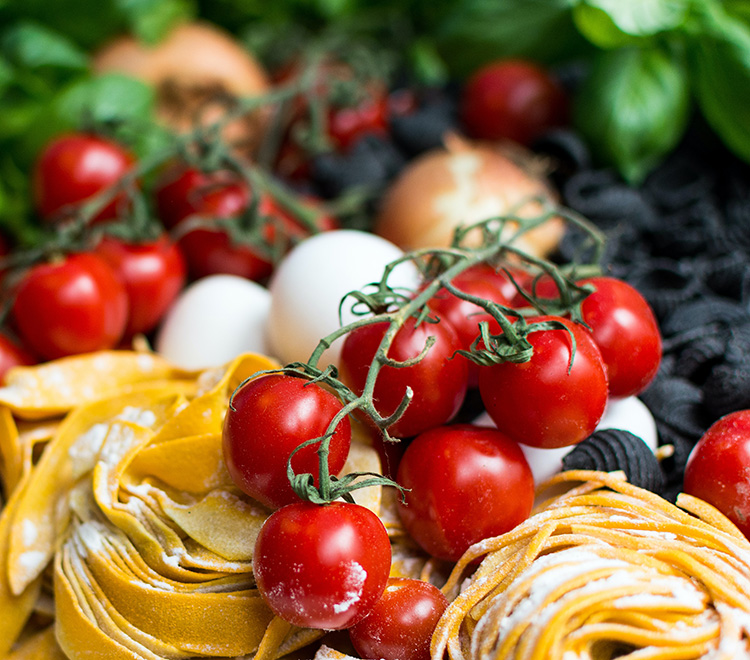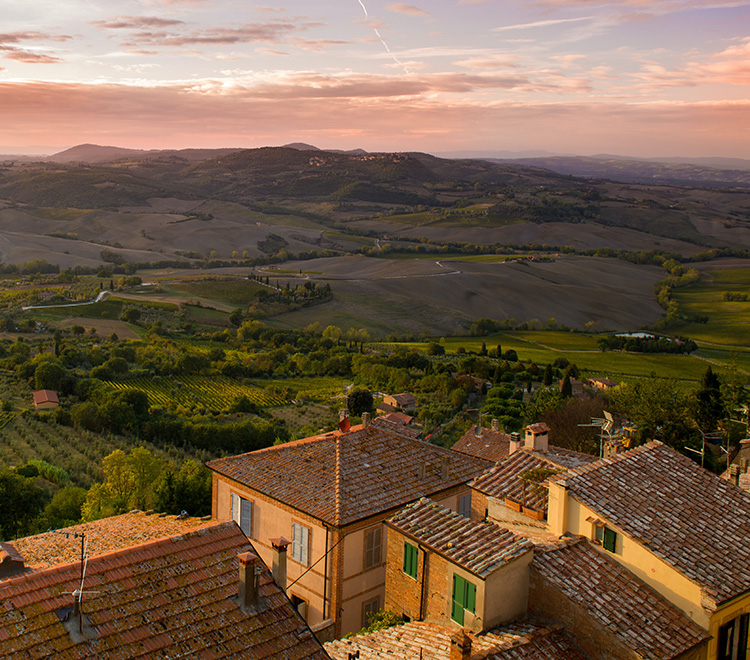Tuscany Living Lab aims to foster a healthy and conscious approach toward food and nutrition within its community, with a particular focus toward the young and elderly population. Tuscany Living Lab boasts a large working group, coordinated by the Piana di Lucca District Zone and the Primary Care Unit of Lucca and supported by the Scuola Superiore Sant'Anna, the University of Gastronomic Sciences in Pollenzo, and OpenDot.
In particular, 3 project lines have been outlined:
- Fostering a healthy and conscious approach toward food and nutrition in middle and high school students within Piana di Lucca and Valle del Serchio District Zones
- Nutrition & Healthy Aging
- Outpatient pediatric nutrition clinic
Who we would like to support
According to national and regional investigations, the Italian and Tuscan populations exhibit unhealthy dietary behaviors that do not align with the Mediterranean Diet, leading to various problems such as increased risk of overweight and obesity and other risk factors for chronic non-communicable diseases (NCDs), nutritional deficiencies and eating disorders. Tuscany Living Lab has dedicated two project lines toward the population of children and adolescents because habits and behaviors established during growth stages can impair both current and future health. It is therefore a priority to implement actions to counter these trends and encourage the development of healthy and sustainable behaviors. At the same time, as The Tuscan Regional Prevention Plan reports, it is important to adopt a life course approach, where the well-being and health of the person is promoted for all stages of life. Intervention aimed at the elderly population and the promotion of healthy aging fits into this logic, since behaviors that can negatively affect health can be perpetuated and established even at this stage of life.
What’s coming next
- Identify a sustainable way to replicate activities conducted in schools at other sites
- Outline and create tools to support replicating sites
- Identify a sustainable way to structure the outpatient pediatric nutrition clinic within the Piana di Lucca District Zone
- Promote the continuation of events dedicated to the elderly population by fostering the connection with the Healthy Aging project
Local Food Challenges
- Promote the development and long-term maintenance of healthy and sustainable eating behaviors in both young and elderly populations
- Promote, in addition to the individual behavioral change, the transformation of the school environment so that the choice of healthy products is the simplest and easiest to undertake
- Involve the whole family in the process of promoting healthy and sustainable eating habits
- Structure the services and projects implemented on nutrition within the District Zones
Living Lab Actions
Tuscany Living Lab has outlined 3 project lines:
- 1. Fostering a healthy and conscious approach toward food and nutrition in middle and high school students within Piana di Lucca and Valle del Serchio District Zone.
Around 100 students are participating in the project, which aims to foster a conscious approach toward food and to accompany students in the process of adopting and maintaining healthy and sustainable eating habits. Following an initial phase of data collection and analysis on nutritional knowledge, eating habits, and related influencing factors, 7 thematic modules were identified together with the students to be explored in depth over the course of the school year. The modules, characterized by practical and theoretical parts, were a journey through nutrition, starting from learning how to organize meals to delving into topics of environmental sustainability and protein transition. This last module was prepared and presented by Slow Food Lucca. In addition, USG students produced 5 original, simple, tasty, and healthy video recipes to provide middle and high school students with simple and practical examples to improve their eating habits. Lastly, a final questionnaire was administered to assess any changes from the initial phase of the project.
- 2. Nutrition & Healthy Aging:
To promote a healthy aging population, the Tuscany Living Lab created a “box-event” of good practices that, thanks to the positive participation received, was replicated six times during the year 2024. Specifically, the event aims to:
Raise awareness of topics such as healthy eating, physical activity, the importance of vaccination, screening exams, and the proper use of antibiotics
Share strategies, materials, best practices, and useful information that can be applied in everyday life.
- 3. Outpatient pediatric nutrition clinic
Piana di Lucca District Zone has instituted a free pediatric nutrition clinic for children and adolescents aged 6 to 16 residing in the Piana di Lucca and Valle del Serchio District Zones. The initiative aims to encourage healthier and more conscious food choices by providing children and their families with useful strategies and tools they can apply in their daily lives. Among them, is the Cross-Cultural Food Pyramid of the Italian Society of Pediatrics, which the Tuscany Living Lab translated into English to promote its dissemination. The service, with a current flow of about 50 visits and steadily increasing, provides an important response at the territorial level to counteract unhealthy eating habits already in the younger population to foster a healthy community both now and in the future.
Get to know the region
Piana di Lucca (~170.000 inhab.) and Valle del Serchio (~56.000 inhab.) are two District Zones within the Northwest Health Authority of Tuscany Region. These areas boast a high life expectancy (~83 years), and have a significant population of people aged 65+ (~16.000 for Valle del Serchio and ~42.000 for Piana di Lucca). They are characterized by a harmonious balance of towns, small villages, mountain and maritime areas, full of history, art and culture. In particular, these areas have a very rich agri-food heritage, including the production of olive oil, wine, vegetables, fruits, cereals, and legumes, all of which belong to the Mediterranean Food Tradition. Moreover, the regions are popular for food & wine tourism, which in turn supports the local community in maintaining high value food production. Social and health initiatives have developed around these sectors, combining the objective of enhancing and disseminating local products with that of promoting their consumption as components of a healthy and sustainable diet.
Frequently asked questions
- What activities are conducted in the Living Lab?
Tuscany LL in parallel with the activities and events planned within the three project lines, took part in the Bright Night in Pisa hosted by the Scuola Superiore Sant'Anna on 27 Semptember and the CARD conference “CONVEGNO INTERREGIONALE CARD EMILIA ROMAGNA TOSCANA UMBRIA | Nuovi modelli di presa in carico della cronicità: la riorganizzazione dei sistemi distrettuali e i team multidisciplinari alla luce del DM 77/22 ” on 15 November
Azienda USL Toscana Nord Ovest
Chiara Ferravante
ferravantechiara@gmail.com
Head of Primary Care Unit of Lucca
Valeria Massei
valeria.massei@uslnordovest.toscana.it
Azienda USL Toscana Nord Ovest
Francesca Milani
drfrancesca.milani@gmail.com
Cross-Cultural Food Pyramid, Italian and English
Teachers' Kit - Ready-to-use education kit for middle and high school teachers, Italian and English
Testimonials from our community
I appreciated the fact that myths about nutrition spread by social media were debunked. The awareness that I didn't really know before whether I was eating healthily or not. That I learned to eat healthily and vary my diet and to eat breakfast. Understanding how to create healthy and sustainable meals and the practical experience when we created meals for a day. I liked learning new things about nutrition that I wouldn't have discovered on my own.
What I liked about this course was that it makes you aware that good nutrition is essential to staying healthy and therefore helps you get started.
I liked the fact that we understood the mistakes we were making and you advised us on how to improve through games.
Discovering the world of food - Episode 1 of 3 - ‘The family at the table’ (Part 1)
Francesca Milani, a nutritionist at Living Lab Toscana, will guide us on a three-stage journey through the world of nutrition. She will help us to eat better and answer the most frequently asked questions about food in a simple, scientific way. She will also provide practical examples to help us organise our daily meals. In this first episode, we discuss which foods to choose to create a balanced meal for the whole family.
Part 2: Discovering the world of food. Episode 2 of 3 - ‘Breakfast, a wonderful invention
Part 3: Discovering the world of nutrition. Episode 3 of 3 - How to read food labels
Watch the full series in our video gallery




